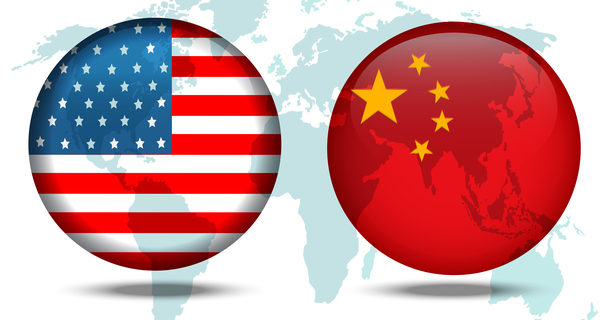U.S. Tightens Grip on China’s AI Chip Ambitions with New Export Controls

Biden has taken a parting swing at China’s chip industry by introducing new export controls. Just weeks ahead of Donald Trump’s second term, the U.S. Department of Commerce announced new rules aimed at limiting China’s ability to make advanced semiconductors. These restrictions are aimed at reducing the ability of China to develop next-gen military weapons using artificial intelligence (AI) and advanced computing.
The Biden-Harris Administration, in collaboration with U.S. allies and partners, has introduced new strategies to tackle evolving global and technological challenges while addressing increasingly advanced threats. Earlier, the administration had also explored capping NVIDIA and AMD AI chip sales to China.
The global tech industry remains concerned about the potential impact of such restrictions. The AI chips from these two companies are critical for powering data centers, training machine learning models, and enabling advanced analytics used across various industries.
 The new restrictions have put controls on 24 types of semiconductor manufacturing equipment and 3 types of software tools. Additionally, Washington has added 140 Chinese companies to an entity list, which bars U.S. suppliers from shipping to them without first receiving a special license. This list includes chip-equipment heavyweights Naura Technology Group, Semiconductor Manufacturing International Corporation (SMIC), and Huawei.
The new restrictions have put controls on 24 types of semiconductor manufacturing equipment and 3 types of software tools. Additionally, Washington has added 140 Chinese companies to an entity list, which bars U.S. suppliers from shipping to them without first receiving a special license. This list includes chip-equipment heavyweights Naura Technology Group, Semiconductor Manufacturing International Corporation (SMIC), and Huawei.
The ministry has stated that the export of materials like gallium, germanium, antimony, and other "super hard" substances will be banned, as they could potentially be used for military applications.
These export controls, particularly on advanced high-bandwidth memory, are designed to limit China's ability to develop AI chips. China has been rapidly advancing in AI chip production, striving to reduce its reliance on foreign technology and establish itself as a global leader in the field.
To address these issues, the U.S. concentrated its efforts on preventing China from acquiring high-end semiconductors. However, China proved that it was capable of manufacturing high-end chips on its own. The U.S. has now shifted its attention to restricting components and equipment used by companies
“This action is the culmination of the Biden-Harris Administration’s targeted approach, in concert with our allies and partners, to impair the PRC’s ability to indigenize the production of advanced technologies that pose a risk to our national security,” said U.S. Secretary of Commerce Gina Raimondo.
“Further strengthening our export controls underscores the central role of the Department of Commerce in executing the United States’ broader national security strategy. No Administration has been tougher in strategically addressing China’s military modernization through export controls than the Biden-Harris Administration.”
One of the key changes to the U.S. policy is an update to the Foreign Direct Product Rule (FDP) - a rule introduced in 1959 to place controls on the transfer of certain items made abroad with the benefit of U.S. technologies.
This rule was previously subject only to companies that had more than 25% of U.S. components. However, this threshold has now been removed. This means that all U.S. technologies are now subject to export controls. As American technology is integrated into products worldwide, this update to the policy could have significant global repercussions.
While the U.S. is tightening the screws with export controls, circumventing the restrictions might not be as challenging as expected. Many large Chinese organizations have subsidiaries not on the entity list. This allows them to move equipment or products through these subsidiaries more easily. It’s possible that under the Trump administration, more Chinese firms will be added to the entity list.
Only time will reveal the effectiveness of the new export controls. However, China has responded strongly to the restrictions. Mao Ning, a spokesperson for China's foreign ministry, criticized the U.S. last week, claiming that it is misusing the concept of national security to justify export controls and suppress China’s growth.
“Such moves seriously violate the laws of market economy and the principles of fair competition, disrupt international economic and trade order and the stability of global industrial and supply chains,” Mao said at a press conference.
China is intensifying its effort to make its semiconductor industry more self-sufficient. Earlier this year, China announced plans to set up its largest-ever semiconductor state investment fund worth $47.5 billion. It is also increasing its investments in domestic semiconductor research and development.
While the new U.S. restrictions may hinder China’s short-term ability to develop advanced AI chips, this move could also serve as a catalyst for advancing local industry and reducing dependence on foreign suppliers.












